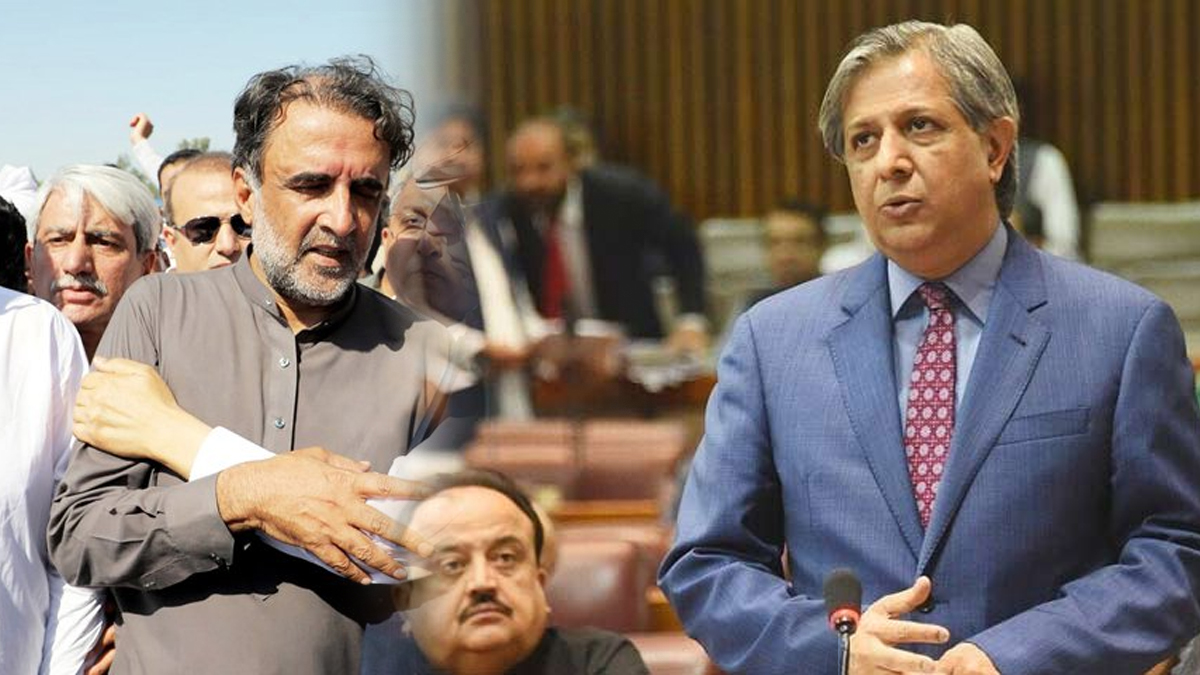
Referring to the July 13 Supreme Court decision regarding the decision of the Deputy Speaker of the National Assembly as historic and landmark, two former Pakistani chief justices turned down the opportunity to lead the commission of inquiry into foreign conspiracy, according to information released by the law minister Azam Nazir Tarar on Thursday.
They did so because they believed PTI chairman Imran Khan would never agree to the commission’s conclusions.
The law minister and Qamar Zaman Kaira, the adviser to the prime minister on Kashmir affairs and Gilgit-Baltistan, both spoke at the PID Auditorium.
PTI claimed had led to the regime change with the assistance of foreign powers
They claimed that the narrative based on the “threat letter,” which PTI claimed had led to the regime change with the assistance of foreign powers, has been effectively buried for all time with the apex court’s ruling on the deputy speaker’s decision on the no-trust motion against former prime minister Imran Khan.
The law minister claimed that the letter that his former colleague Fawad Chaudhry sent to Chief Justice of Pakistan (CJP) Umar Ata Bandial, pleading for the creation of a commission and an investigation into the threat letter, belonged to the government.
The former government did not provide any evidence before the court to substantiate the allegations
The law minister stated, “We are ready to cooperate with the court in case it decides to constitute the commission since we own the letter,” but he hastened to add that the SC itself held in the judgement that it did not find sincerity in the allegations in addition to the court choosing not to get itself involved in it because it was a political question especially since the former government did not provide any evidence before the court to substantiate the allegations.
Read More | Imran ‘Hurt’ By Detailed SC Judgement
Read More | ACE To Grill Sheikh Rashid In Fee Scandal
While this was going on, Mr. Kaira claimed that the court’s ruling proved that the PTI’s claim of a foreign conspiracy was really a scheme against the people of Pakistan and its democratic institutions.
He did, however, extend an olive branch to Imran Khan by saying that while he may continue holding public rallies against the current administration or attempting to topple it through democratic means by introducing a similar vote of no confidence, he should think about joining mainstream politics rather than continuing to attack institutions, incite hatred, and promote anarchic politics.
Additionally, Mr. Kaira requested that the PTI chairman select any judge of his choosing so that an appropriate inquiry commission could be established and he would have no choice but to accept the investigation’s findings.
He emphasised that in addition to the Supreme Court ruling exposing the truth of the foreign conspiracy thesis, the National Security Committee (NSC) had rejected the conspiracy narrative.
Invoking Article 6 (high treason) as suggested by Justice Mazhar Alam Khan Miankhel, one of the Supreme Court judges, Azam Tarar conceded that the no-confidence motion clearly violated the constitution. However, it was a very serious matter, and the entire parliament rather than a single person should come out with a clear approach how to deal with it, as suggested by the judge.
Khan provide credible proof for the conspiracy theory
Mr. Kaira expressed sorrow that Imran Khan, the leader of the PTI, consistently portrays his opponents as traitors in order to sow discord in society and chaos in the nation, and he suggested that Khan provide credible proof for the conspiracy theory.



